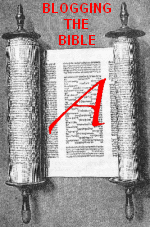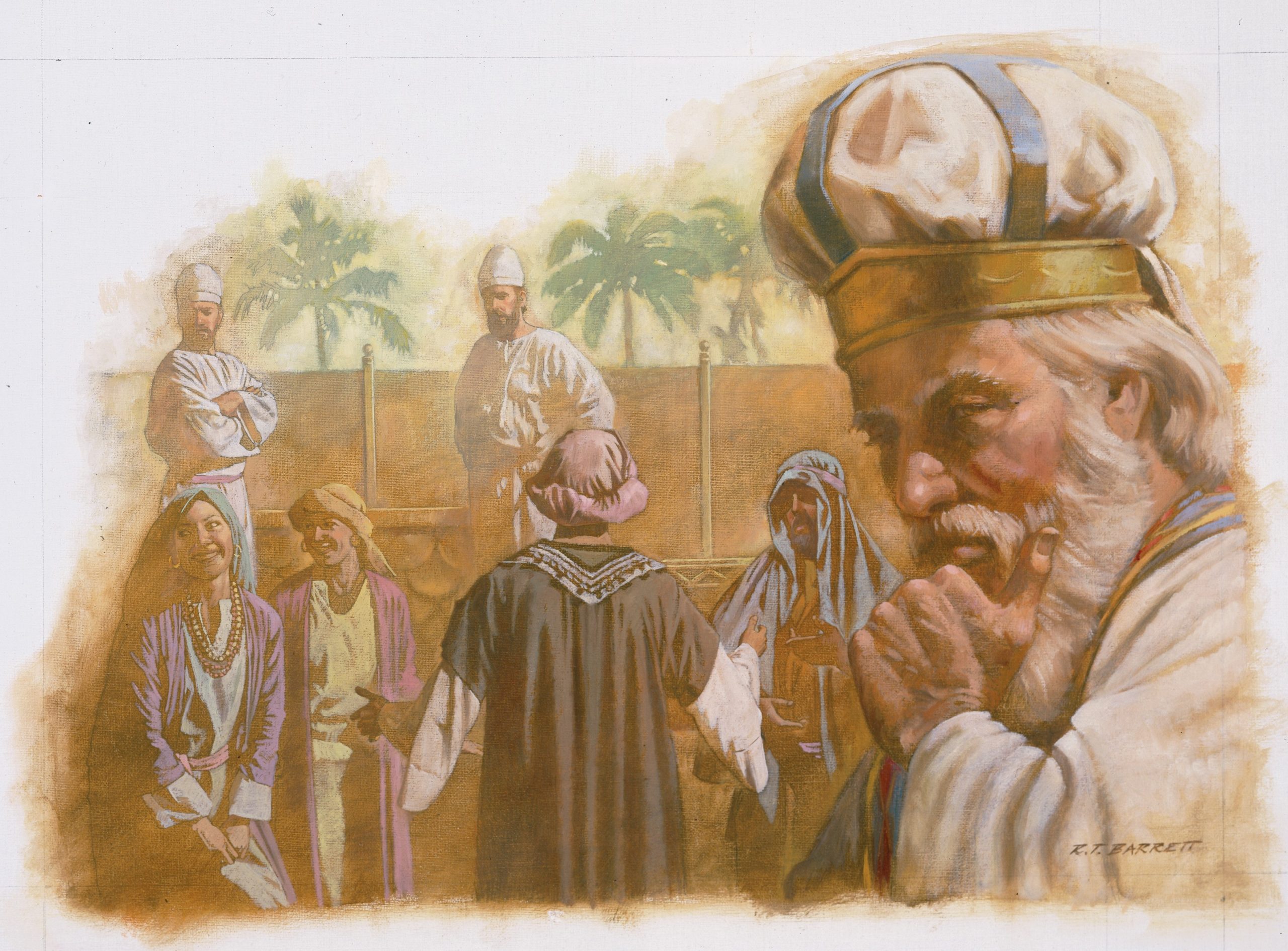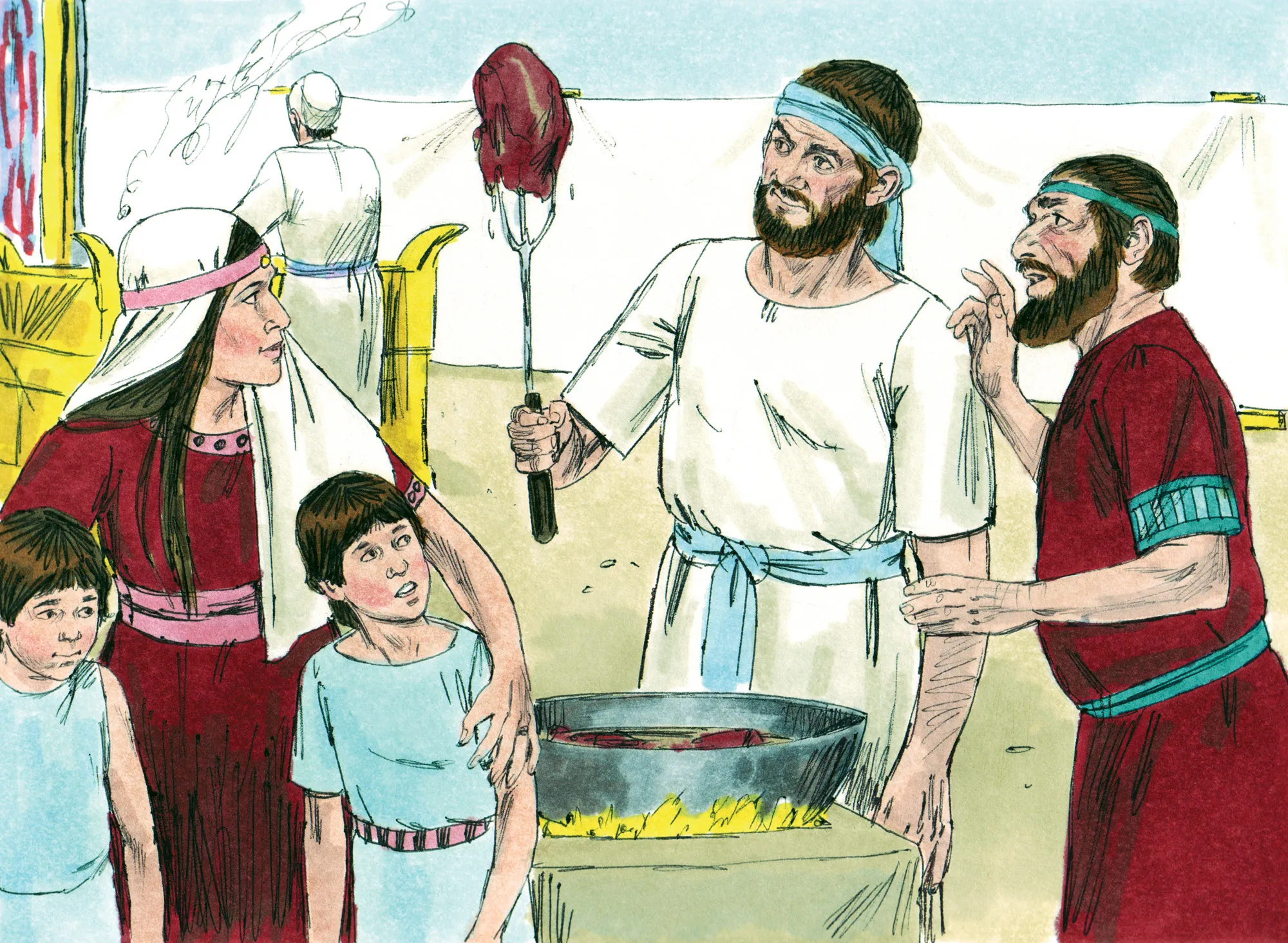 [continued from previous post] –she sings a song of praise to YHWH. Like similar sentiments in Job, the song might sound good to believers but to me it just makes YHWH sound like a mobster. Here’s a sample: “I gloat over my enemies, I rejoice in Your deliverance…The bows of the mighty are broken and the faltering are girded with strength…The LORD deals death and gives life, casts down into Sheol and gives life(2:1b,4,6)”. Yep, he can either give you a million bucks or break your legs.
[continued from previous post] –she sings a song of praise to YHWH. Like similar sentiments in Job, the song might sound good to believers but to me it just makes YHWH sound like a mobster. Here’s a sample: “I gloat over my enemies, I rejoice in Your deliverance…The bows of the mighty are broken and the faltering are girded with strength…The LORD deals death and gives life, casts down into Sheol and gives life(2:1b,4,6)”. Yep, he can either give you a million bucks or break your legs.
The bulk of this chapter deals with Eli’s two sons (Hophni and Phinhas) who being priests attended to the sacrifices around the ark. First, let me just give the main passage:
12 Now the sons of Eli were base men; they knew not the LORD. 13 And the custom of the priests with the people was, that, when any man offered sacrifice, the priest’s servant came, while the flesh was in seething, with a flesh-hook of three teeth in his band; 14 and he struck it into the pan, or kettle, or caldron, or pot; all that the flesh-hook brought up the priest took therewith. So they did unto all the Israelites that came thither in Shiloh. 15 Yea, before the fat was made to smoke, the priest’s servant came, and said to the man that sacrificed: ‘Give flesh to roast for the priest; for he will not have sodden flesh of thee, but raw.’ 16 And if the man said unto him: ‘Let the fat be made to smoke first of all, and then take as much as thy soul desireth’; then he would say: ‘Nay, but thou shalt give it me now; and if not, I will take it by force.’ 17 And the sin of the young men was very great before the LORD; for the men dealt contemptuously with the offering of the LORD. [Source]
Now, what would you say the actual “sin” of the two sons was? In my Tanach classes in school they said that the sons would steal from the people bringing the sacrifices, thereby appealing to the students’ sense of social justice. However, looking at the passage now I don’t think that was the main problem. Sure, they’re portrayed as unpleasant bullies but the description seems to just have them taking their [alotted] priestly portion at the wrong time — NOT taking more of it than they should (ie. stealing from “real Israelites”). The text itself says that they sinned against YHWH and spurned his sacrifices, and mentions nothing about the people. Of course the theft could be implied, but I think there’s a better explanation. The authors of Samuel genuinely were more concerned with the “heavenly justice” of sacrifices to YHWH than the social justice of how much meat the peasant gets to keep for his/her pot. Social norms of those studying the text have evolved so now it’s a bit embarrassing to have this as their “great” sin. It’s very natural to project an increased concern with social justice onto the text and exaggerate its importance in the story.

Of course Eli then chews them out because he hears rumours that they’ve been sleeping with the female attendants, but even then he specifically says “If a man sins against a man, the LORD may pardon him; but if a man offends against God, who can obtain pardon for him? (2:25)”. Later Judaism says that the laws between humans are more important than those between YHWH and humans. But the god of Samuel is a petty god.
A prophet comes to Eli and predicts the downfall of his priestly house because he hasn’t reigned his sons in. If the sons were ok, his priestly line would have persisted until the end of time* but now it’ll be over and both his sons will die on the same day. As is typical of the time, families (or houses) are seen as entire units. The merits of individuals don’t matter. Hophni and Phinehas were sinners so the priesthood is taken away from them and their children and their children’s children.
Speaking of children, we now turn to Samuel who’s but a wee lad. Samuel–[to be continued].
*Does this mean the Jewish exile wouldn’t have happened? Should Jews blame Eli for 2000 years full of pogroms, expulsions, massacres?





0 Comments